Jeffrey L. Elman Prize
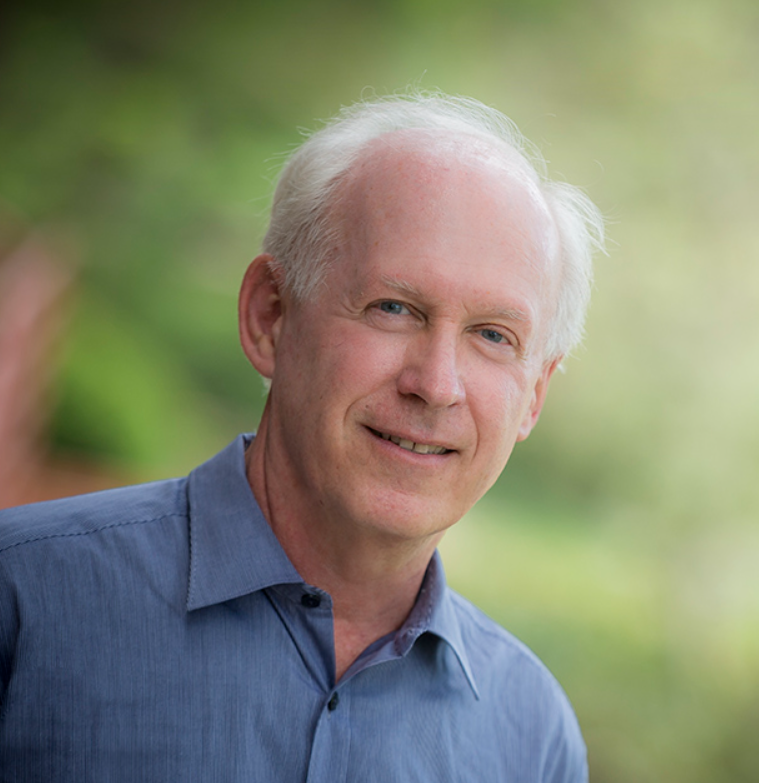
In recognition of Jeff Elman’s many contributions to the field of cognitive science, the Cognitive Science Society is pleased to award the annual Jeffrey L. Elman Prize for Scientific Achievement and Community Building. This award, presented each year at our Annual Meeting, is given to mid-career cognitive scientists (individuals or teams) whose accomplishments exemplify the twin strands of scientific excellence and commitment to community-building and service that were so evident in Jeff Elman’s career.
The Elman Prize nominations and selection process occurs annually, with a call for nominations released in the fall and winners announced in winter. The prize consists of a hand-crafted, custom silver medal, a certificate, a citation of the awardee’s contributions, and a monetary award of $25,000.
Jeffrey L. Elman made several major contributions to the theoretical foundations of human cognition, most notably in the areas of language and development. His work had, and continues to have, an immense impact across fields as diverse as cognitive science, psycholinguistics, developmental psychology, evolutionary theory, computer science and linguistics. Among other honors he was awarded the Rumelhart Prize by the Cognitive Science Society in 2007.
In addition to the many important intellectual contributions Jeffrey Elman made to Cognitive Science, he also was an inspiring scientific citizen who is remembered for his generosity and mentorship. His community building and service were wide-ranging. In addition to serving as president of the Cognitive Science Society (1999-2000) and on its Governing Board for two terms (1994-2000; 2008-2012), he made many other contributions to the field. He contributed to the international presence of Cognitive Science, serving as Co-Director, Central and Eastern European Center for Cognitive Science, New Bulgarian University and advisor at National Taiwan University. He served extensively at the NIH in grant reviewing, serving on and later chairing the LCOM Study Section. And in addition to editing the journal Cognitive Science, he edited an influential monograph series at the MIT press and served on the editorial board of numerous journals.
Jeff Elman died of a heart attack on June 28, 2018. He was planning to attend CogSci 2018 to participate in a symposium on Event Predictive Cognition. At CogSci 2019 there was a symposium in his memory.
Selection Committee
The Jeffrey L. Elman Prize is administered by the Prize Selection Committee under the direction of the Cognitive Science Society Governing Board. Screening of nominees and selection of the prize winner is performed by the Prize Selection Committee.
Ken McRae (Chair), University of Western Ontario
Stephanie Denison, University of Waterloo
Andrea Chiba, University of California at San Diego, La Jolla
Wei Ji Ma, New York University
Eliana Colunga, Universiy of Colorado, Boulder
Fundraising for the Endowment
The Cognitive Science Society established a special endowment for the Elman Prize, made possible through a very generous gift from Robert J Glushko & Pamela Samuelson Foundation and a matching transfer of funds from the Cognitive Science Society’s core endowment. Funds have also been raised through Jeff’s colleagues and students at UCSD. Others who wish to recognize and honor Jeff Elman and his notable contributions to cognitive science are able to designate donations specifically for this purpose. We encourage donations from all those with enthusiasm for the combination of science, community, and service contributions to cognitive science that Jeff Elman embodied. Your donations will enable the Society to celebrate Jeff’s legacy for many years to come.
If you would like to donate by check or another mechanism, or if you have any questions, please contact Erica Wojcik, Executive Officer at .
Tax efficient giving The Cognitive Science Society is a registered 501(c)(3) tax-exempt organization under the Internal Revenue Code, so US donors can qualify for an income tax deduction to the limits allowed by law. It also is possible to give tax efficiently through Transnational Giving Europe from the following European countries: Belgium, Bulgaria, France, Germany, Hungary, Italy, Luxembourg, Poland, Republic of Ireland, Switzerland, and The Netherlands. To donate and claim tax relief please contact your national foundations and explain that you wish to make a gift to the Cognitive Science Society.
2025 Recipient
TimOTHY T. Rogers
The recipient of the 6th Jeffrey L. Elman Prize for Scientific Achievement and Community Building is Timothy T. Rogers. This honor will be celebrated at the CogSci 2025 conference with a prize and dedicated symposium.
Biography
Tim Rogers received his B.A. in Psychology and English at the University of Waterloo (Canada), Ph.D. in Psychology at the Carnegie Mellon University (US), and was a postdoctoral fellow at the MRC Cognition and Brain Science Unit at the University of Cambridge (UK). Tim began as an Assistant Professor in the Department of Psychology at the University of Wisconsin-Madison (US) in 2004. He currently is a Professor of Psychology, and a Faculty Fellow at the Wisconsin Institute for Discovery, University of Wisconsin-Madison.
read more
Scientific Achievements
Tim Rogers is an exceptional and complete Cognitive Scientist who has made influential contributions to our scientific understanding of semantic cognition, including its computational underpinnings, its neural basis, its development in childhood, and its decay due to multiple types of neural impairments. His research is widely recognized as innovative and theoretically incisive. For example, Tim is synonymous with the hub and spoke theory of semantics, and more recently, the Controlled Semantic Cognition framework that extends the theory of semantic processing to representation and control. These computationally-implemented theories have provided a unified framework for the nature and use of concepts, their development in children, processing in adulthood and their differential breakdown due to multiple forms of neurological damage. In fact, the article presenting the hub and spoke model has garnered over 3,000 citations alone. Furthermore, Tim’s semantic cognition book and accompanying Nature Reviews Neuroscience article (with Jay McClelland) have been cited almost 2,500 times. In addition, Tim’s and his colleagues’ theories go beyond the semantic cognition to shed insight into the neural bases of semantics in healthy individuals and patients. He and his colleagues’ examinations of semantics in healthy adults’ brains include one of the first studies to resolve the apparent discrepancies between neuroimaging in healthy controls and findings from semantic dementia, explorations of speeded categorization, the generation of an influential new and widely-used measure, semantic diversity, and a series of innovative behavioral and neuroimaging studies on learning semantic abstract community structures, and how this learning is influenced by sleep consolidation. Tim’s research also has provided new insights into explorations of decoding semantic information in the brain, again spanning theory, computational modeling, novel analytical approaches, and decoding of brain imaging in both healthy participants and patients. In summary, Tim Roger’s influence on our understanding on semantic knowledge has been broad, integrated, and highly influential.
Community Building
Tim Rogers has been instrumental in fostering an inclusive, interdisciplinary, trainee-focused cognitive science community, both in the field at large, and at UW-Madison. The underlying theme of Tim’s community-building is to bring together trainees and faculty members to use behavioral and computational approaches to address important real-world and societal challenges. In 2007, Tim founded HAMLET (Human, Animal, and Machine Learning: Experiments and Theory), a cross-departmental seminar series encompassing human, animal, and machine learning. It continued weekly for 13 years, consistently fostering collegial relationships, inspiring collaborative projects, and forging connections among trainees and scholars across many departments, including Psychology, Computer Science, Electrical & Computer Engineering, Statistics, Educational Psychology, and Journalism. Tim founded and directs the AI+Society research consortium that provides undergraduate and graduate students and junior and senior faculty cross-disciplinary opportunities to collaborate on basic and applied research projects. He also founded and directs the professional Master’s program in Data Science in Human Behavior (2020-present), which trains students from the behavioral sciences to apply data science to important social issues in industry, government, and nonprofit settings. Tim directs the weekly seminar, coordinates capstone projects with external partners, and teaches courses. Tim has been a co-PI on three NSF Research Experience for Undergraduates grants (2018-present). This program, which he has co-Directed throughout, provides summer research experiences in psychology and data science for under-represented minority and first-generation undergraduate students. Tim coordinates the data-science training, and works with Ph.D. students to develop hands-on undergraduate learning opportunities. In addition, Tim was the PI on an NSF-funded National Research Traineeship program called LUCID: Learning, Understanding, Cognition, Intelligence, and Data science. This interdisciplinary graduate training program, which Tim directed from 2015-2021, trained students to conduct interdisciplinary research in data science, AI, and the social sciences to address pressing societal issues.
Finally, as Publicity co-Chair and Sponsor’s Chair, Tim secured grants to support the CSS Annual Meetings from 2007-2009. He Chaired the Program Committee for CogSci 2018 in Madison, and Chaired the Computational Awards Committee for the 2020 and 2021 conferences. Tim also has organized numerous symposia and workshops for CSS conferences, the Memory Disorders Research Society, the Cognitive Neuroscience Society, Theoretical and Experimental Neuropsychology (TENNET), and the Experimental Psychology Society (UK).
In summary, Tim Rogers has made a huge number of contributions that have focused on training the next generation of scholars in cognitive science, including increasing the diversity of cognitive science, and making the field more integrated, inclusive, and welcoming. Tim’s community building will have a legacy that is both long and deep.
2024 Recipient - Asifa Majid
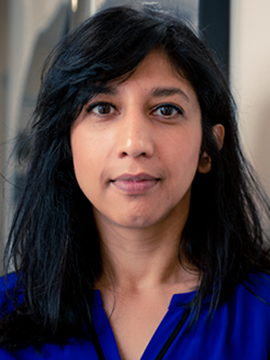 The recipient of the 5th Jeffrey L. Elman Prize for Scientific Achievement and Community Building is Asifa Majid. This honor will be celebrated at the CogSci 2024 conference with a prize and dedicated symposium.
The recipient of the 5th Jeffrey L. Elman Prize for Scientific Achievement and Community Building is Asifa Majid. This honor will be celebrated at the CogSci 2024 conference with a prize and dedicated symposium.
Biography
Asifa Majid received her M.A. in Psychology at the University of Glasgow, M.Sc. in Cognitive Science and Natural Language at the University of Edinburgh, and Ph.D. in Psychology at the University of Glasgow. Asifa has been a researcher at the Max Planck Institute for Psycholinguistics in Nijmegen, Center for Language Studies at Radboud University, Department of Psychology at the University of York, and Radcliffe Institute for Advanced Study, Harvard University. She is currently Professor of Cognitive Science at the University of Oxford and a Tutorial Fellow of St Hugh’s College, Oxford.
Scientific Achievements
Asifa Majid has carved out a distinctive intellectual niche in Cognitive Science. Two major themes are apparent in her work: the study of typological variation in semantic structure across languages, and interactions between language and cognition. For both of these, Asifa tackles questions with wide theoretical import. Her research has challenged conventional wisdom and provided important, novel insights into the systematic relations among culture, perceptual acuities, and linguistic classification. Asifa and her colleagues have explored issues across a wide set of domains, including spatial cognition, event segmentation, color categorization, pitch perception, and taste and smell. She has probed semantics in infants, the development of categories during childhood, and cross-cultural variability or stability, employing many experimental and exploratory techniques, including primary fieldwork in multiple societies and Indigenous languages. Her strikingly original work on the linguistic coding of odor categories has been highly influential, demonstrating that the ability to express thoughts about odor is a cultural phenomenon. Asifa also was the instigator and lead author on a 2018 PNAS article demonstrating differential linguistic coding across all of the major perceptual fields in 20 spoken and sign languages. These diverse avenues have influenced a wide range of academic researchers, as well as industrial research labs. As a result of her innovative, influential research, Asifa was awarded the KNAW Award for fundamental research from the Royal Netherlands Academy of Arts and Sciences and the Ammodo Foundation (2015), lauding her for “building totally new bridges between very diverse fields.” Finally, Asifa is a Fellow of the Cognitive Science Society, the Association for Psychological Science, and Academia Europaea, Linguistics section.
Community Building
Asifa Majid’s community building activities are numerous, multi-faceted, and inspiring. Asifa has played a major role in the Cognitive Science Society, as a member of the Governing Board (2016-2022) and Chair (2019-2020). Asifa’s accomplishments in these roles are truly exceptional. Through strategic recruitment, she worked to have the CSS better represent the membership and larger scientific community, both culturally and geographically. As Chair of the Diversity and Inclusion Committee, Asifa’s passion for equity and inclusivity led to several major accomplishments. The committee added prizes for students from underrepresented racial/ethnic groups and economically disadvantaged countries, prizes for research on diversity and social inequality, and awards for disciplinary diversity. Asifa also led initiatives to create hardship waivers and family care grants. Finally, she was instrumental in establishing the CogSci Grove in the Scottish Highlands as a means to mobilize academics to offset the carbon emissions associated with the annual conference. Asifa’s community building extends well past the CSS, however. She is involved in multiple community efforts to promote Indigenous languages. As one example, Asifa is on the Scientific Committee for a newly established field station in Peru that collaborates with local organizations to promote research and revitalisation of Peruvian Amazonian Indigenous languages. Asifa worked with the Dutch Knowledge Hub (WKRU) and teachers from three local schools to translate findings from her lab’s research into a classroom curriculum that introduces children to cross-cultural language variation and sensory perception. This resulted in book chapters that are used by classroom teachers in the Netherlands and France. Asifa has collaborated with artists to explore new ways of bringing cognitive science to the public, including at the Cooper Hewitt, Smithsonian Design Museum in New York, and The Art Workers Guild in London. She also is a Scientific Advisor for a new museum Biotopia: Museum of Life in Munich, exploring the relationships between humans and other living species. Asifa also is one of the founding editors of the Open Encyclopedia of Cognitive science, which provides accessible and scholarly articles about cognitive science free for the community, with the goal of making it available in multiple languages. Finally, Asifa is particularly invested in supporting earlier career researchers, especially those from under-represented or non-traditional backgrounds. As part of this, Asifa mentored junior female scientists within the Max Planck Society, and she mentors women returning to academia after a family caring break in their careers.
2023 Recipient - Teenie Matlock
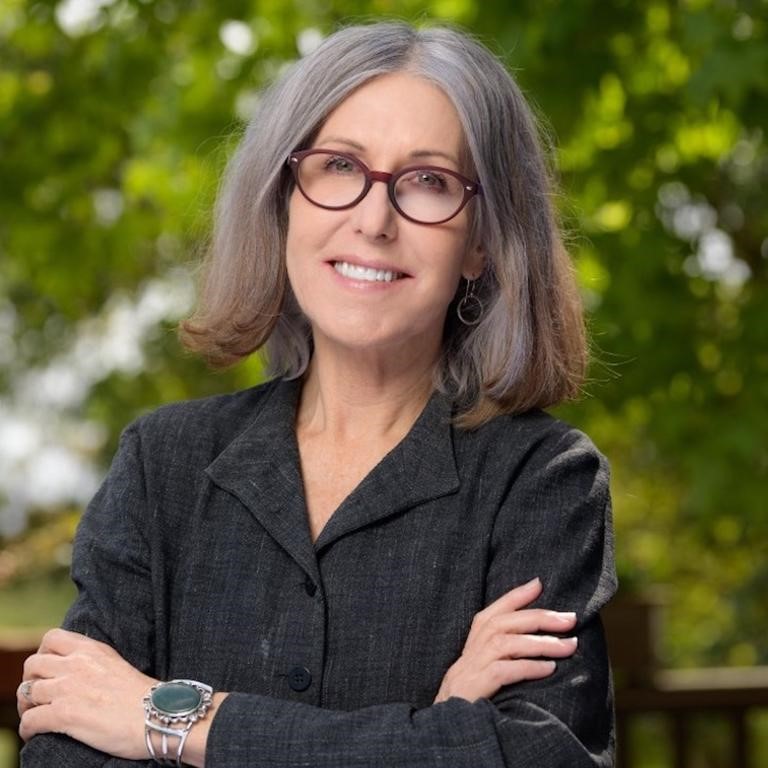 The recipient of the 4th Jeffrey L. Elman Prize for Scientific Achievement and Community Building is Teenie Matlock . This honor will be celebrated at the CogSci 2023 conference with a prize and dedicated symposium.
The recipient of the 4th Jeffrey L. Elman Prize for Scientific Achievement and Community Building is Teenie Matlock . This honor will be celebrated at the CogSci 2023 conference with a prize and dedicated symposium.
Biography
Teenie Matlock received her M.A. in Linguistics at California State University Fresno, and then her Ph.D. in Cognitive Psychology from UC Santa Cruz (2001). She conducted a postdoc at Stanford from 2001-2003. In 2004, Teenie was hired as founding faculty at UC Merced. She currently is a Professor of Cognitive Science and McClatchy Chair in Communications at Merced, where she recently completed her role as Vice Provost for Academic Personnel.
Scientific Achievements
Teenie Matlock’s research program addresses language at the intersection of perception, action, society, and technology. Her research has made important contributions to our understanding of the role of language and communication in cognition, politics, social media, and climate science. She is a leading figure in Cognitive Science in general, and Cognitive Linguistics in particular. Teenie’s research has demonstrated that linguistic understanding emerges from dynamic processes grounded in human physical experience, including visual motion perception, self-motion, and everyday interaction with technology and society. She has made contributions to metaphor comprehension, image schema representations of verbs, linguistic negation, verbal aspect, social distance, and time and number representation. In particular, she is known for her work on fictive motion. This research has shown that the implied movement in a fictive motion sentence is psychologically real, and it detectably alters the ways in which a reader or listener understands it. She also has published a number of articles showing that subtle characteristics of language usage can have strong consequences for people’s voting preferences. In terms of language and technology, Teenie and her collaborators have explored how autonomous artificially intelligent avatars can take advantage of their own simulated embodiment to employ language, gestures, and visual gaze to improve interactions with people. Finally, Teenie’s research has provided insights into climate communication. In much the same way that small changes in the grammar of a sentence can have large consequences in real-world political decisions, she has shown that subtle changes in the wording of press reports on climate science issues can have robust effects on how people understand the facts about climate change.
Community Building
Teenie Matlock (a Native American from the Southern Sierra Miwuk Nation) has led, and played instrumental roles in, community building, service, and outreach in numerous inspiring ways. Within Cognitive Science, Teenie played a central role in founding, building, and maintaining the Department of Cognitive & Information Sciences at UC Merced. She has hosted retreats, and chaired or participated in a huge number of committees, workshops, and groups. Her tireless multi-level efforts allowed her to nurture the growth of Cognitive Science at UC Merced. She also won UC Merced’s Senate Award for Excellence in Faculty Mentoring in 2015. In the community as well as within academia, Teenie has promoted and fought for the visibility and rights of indigenous people. Teenie has promoted the visibility and support systems of Native American students and faculty members at UC Merced, and in the entire University of California system. She played an important role in facilitating the recent UC System decision to make tuition free to California Native students of federally recognized tribes. She frequently has served on her Southern Sierra Miwuk Nation’s tribal council, where she has promoted the benefits of higher education to the community. Teenie also served as Vice Chair, American Indian Council of Mariposa County. Furthermore, she recently spearheaded the construction of Toloma Grove, a reflection garden on the UC Merced campus dedicated to celebrating Native American tribes and their cultural practices and societal challenges. She currently is a Special Advisor to the Chancellor on Indigenous Matters at UC Santa Cruz. Teenie also served on the UC system’s President’s Advisory Council on Campus Climate, Culture, and Inclusion (2010-2013). In addition, due to her research on communicating climate issues, Teenie served on the University of California Climate Solutions Groups (2015-present), and Co-Chaired UC Merced’s Center for Climate Communication (2016-2018). This Center conducts and promotes research on communicating climate issues, including studying how the content and mode of presenting climate information influences how the general public reasons about uncertainty and risk, working with people to develop better ways to talk about and think about climate issues, and hosting and participating in outreach and educational activities. Finally, Teenie was given an Athena Award in 2021 from the Women in Tech Initiative to recognize those who embody, encourage, and promote the inclusion of women in technology.
2022 Recipient - Franck Ramus
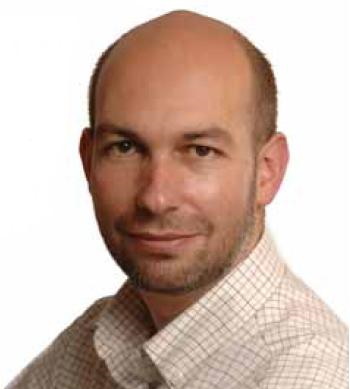 The recipient of the 3rd Jeffrey L. Elman Prize for Scientific Achievement and Community Building is Franck Ramus . This honor will be celebrated at the CogSci 2022 conference with a prize and dedicated symposium.
The recipient of the 3rd Jeffrey L. Elman Prize for Scientific Achievement and Community Building is Franck Ramus . This honor will be celebrated at the CogSci 2022 conference with a prize and dedicated symposium.
Biography
Franck Ramus received his PhD in Cognitive Science from EHESS (École des hautes études en sciences sociales), Paris in 1999, under the supervision of Jacques Mehler. He continued as a Marie Curie Fellow at the Institute of Cognitive Neuroscience, University College London, and then returned to Paris. Since 2002, he is a tenured CNRS researcher at the Department of Cognitive Studies, Ecole Normale Supérieure – PSL University, Paris.
Scientific Achievements
Franck Ramus has used the tools of cognitive science to characterise the core deficits in dyslexia. He compared the cognitive profiles of children with different neuro-developmental disorders, including those with dyslexia, with autism and with developmental language disorders, to better distinguish the core deficits from the non-specific comorbidities. He participated in major international cross-language collaborations on causes of reading difficulties and effects of orthographic complexity. He used an epidemiological approach in his ongoing study of two French birth cohorts to uncover the complex causal pathways that underlie cognitive development. Together with his team he produced the first population norms for brain structure using UK Biobank neuroimaging data on 40K individuals.
Community Building
Franck Ramus is one of the main promoters of cognitive science in the French-speaking world and beyond. He currently directs one of Europe’s best programs in Cognitive Science, the Master in Cognitive Science at ENS-PSL, University of Paris, and EHESS. He has been a tireless advocate of evidence-based psychology and psychiatry as well as evidence-based education. His writings have been instrumental in shaping the new French policy on autism and the National Strategy for Autism and Neurodevelopmental disorders, firmly combatting widespread non-evidence-based approaches. Through strategic use of popular science platforms and through his blog, he has energetically promoted open science and has embarked on major public debates on education. His dedication to the community, as seen in his creation of a new online course on ‘Psychology for Teachers’ has gained him a huge following.
2021 Recipient - Wei Ji Ma
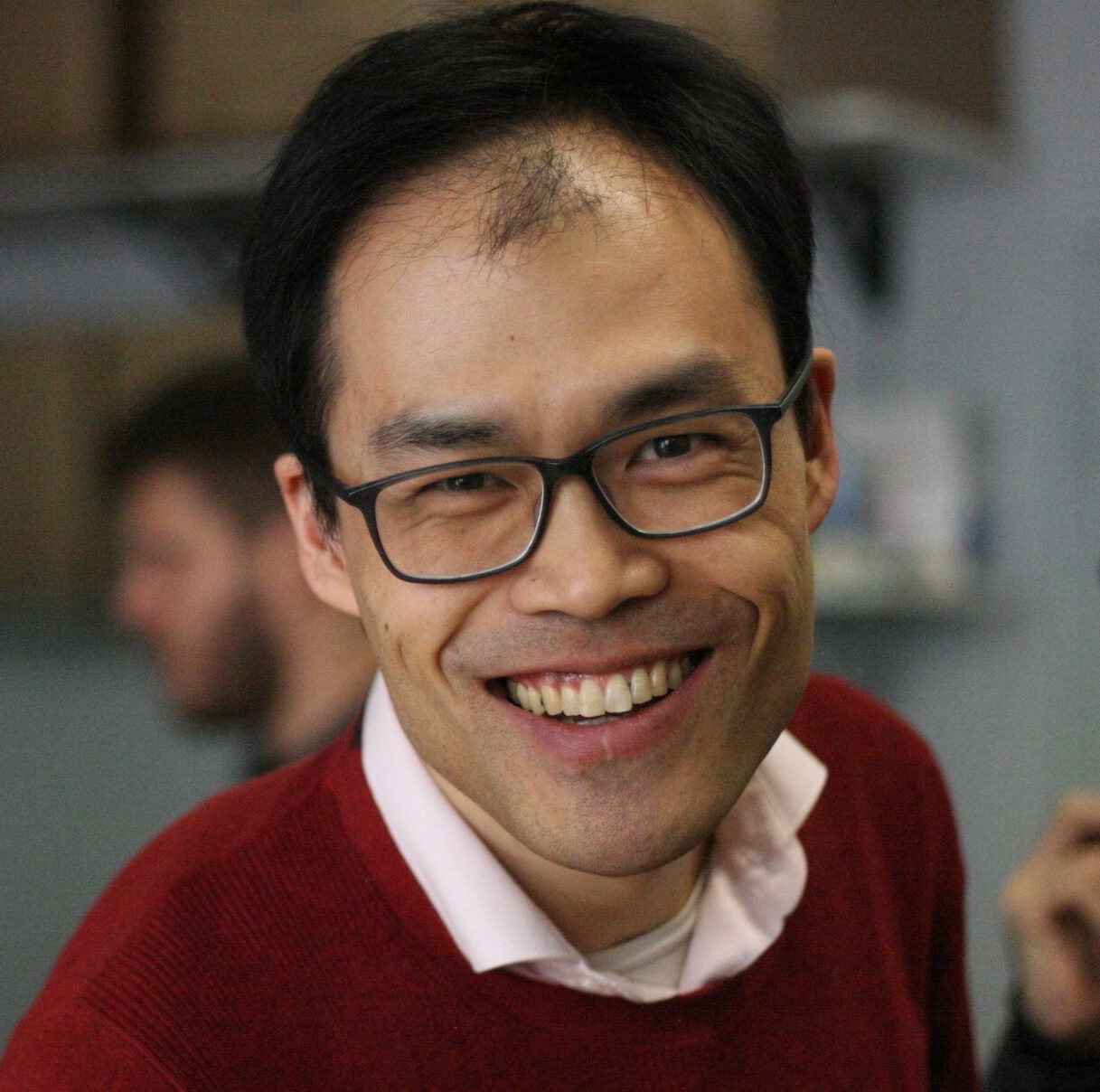 The recipient of the 2nd Jeffrey L. Elman Prize for Scientific Achievement and Community Building is Wei Ji Ma. This honor will be celebrated at the CogSci 2021 conference in Vienna with a prize and dedicated symposium.
The recipient of the 2nd Jeffrey L. Elman Prize for Scientific Achievement and Community Building is Wei Ji Ma. This honor will be celebrated at the CogSci 2021 conference in Vienna with a prize and dedicated symposium.
Biography
Wei Ji Ma received his PhD in Theoretical Physics from the University of Groningen in 2001. He continued his path through Cognitive Science with postdocs in Biology at the California Institute of Technology and in Brain and Cognitive Sciences at the University of Rochester. Wei Ji was then an Assistant Professor in the Department of Neuroscience at the Baylor College of Medicine from 2008-2013. He currently is an Associate Professor in the Center for Neural Science and Department of Psychology at New York University.
Scientific Achievements
Wei Ji Ma has made impressive contributions to Cognitive Science in a number of areas, including perceptual decision making, neural coding and computation, working memory, and planning. He has a long-standing interest in how humans make perceptual decisions and, in particular, the extent to which such decisions correspond to an ideal Bayesian observer that takes into account noisy measurements, estimates of measurement uncertainty, prior knowledge, and the costs and benefits of outcomes. In his research, Wei Ji has contributed to our understanding of the limits of Bayesian models when computational requirements become extensive, and perceptual decision making in dynamic environments and multi-sensory contexts. He was part of a team that made fundamental contributions to the theoretical basis of neural computation in the “Bayesian brain” paradigm. This work was a team effort, but Wei Ji was the lead author of by far the most important article in this stream, the Nature Neuroscience 2006 classic on probabilistic population codes that already has been cited almost 1,400 times. Furthermore, his work on probabilistic models of visual working memory is particularly noteworthy. Wei Ji demonstrated how computational models can resolve much of the controversy between slot-based and continuous-resource accounts, in part by elucidating when existing experiments could not effectively discriminate between these accounts, and then by designing innovative discriminating experiments guided precisely by his computational models. Overall, Wei Ji’s research stands out because of its beautiful interplay between theory and experiment, connected by exemplary mathematical rigor and clear common-sense thinking.
Community Building
Wei Ji Ma’s community building efforts are numerous, diverse, and inspiring. They include multiple innovative mentoring efforts within his and other universities, as well as working with the general public in multiple ways. Wei Ji is the Co-Director of the Training Program in Computational Neuroscience, funded by a five-year NIH training grant. He co-founded the “Growing Up in Science” mentorship series, and he organizes and moderates this series for Psychology, the Center for Neural Science, and Neuroscience at NYU. In these seminars, faculty members tell their personal career story to students and postdocs, emphasizing the difficulties they faced and how they overcame them. This helps trainees to realize that most paths to an academic career are winding and full of potholes, so if they themselves are facing doubts and difficulties, that does not mean they cannot succeed in academia. “Growing Up in Science” has been replicated at greater than 30 other universities. Wei Ji also founded “Meet Your Professors” at NYU. Outside of academia, Wei Ji is a founding member and leader of the Scientist Action and Advocacy Network (ScAAN; www.scaan.net). ScAAN is a group of New York area scientists who provide pro bono science consultation and data analysis services to non-profit social progress organizations by writing knowledge briefs for lay audiences, and by analyzing and visualizing data. As part of this, Wei Ji led the production of a knowledge brief for Raise the Age (raise the age of criminal responsibility from 16 to 18 years old in New York State, which was passed in 2018), and he testified in front of New York City Council committees. He also led a partnership between ScAAN and BagItNYC to ban single-use plastic bags from New York State (which came into effect in 2020). Wei Ji also is a founding member of NeuWrite NYU, a consortium of neuroscientists and writers who meet monthly to workshop neuroscience writings for general audiences. Finally, he co-founded and is the Chairperson of the Rural China Education Foundation (www.ruralchina.org), which works to improve the relevance of education in rural China to children’s lives.
2020 Recipient - Jenny Saffran
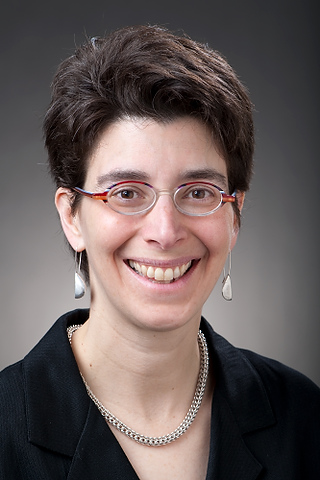 The recipient of the inaugural Jeffrey L. Elman Prize for Scientific Achievement and Community Building is Jenny Saffran. This honor will be celebrated at the CogSci 2020 conference in Toronto with a prize and dedicated symposium.
The recipient of the inaugural Jeffrey L. Elman Prize for Scientific Achievement and Community Building is Jenny Saffran. This honor will be celebrated at the CogSci 2020 conference in Toronto with a prize and dedicated symposium.
Biography
Jenny Saffran received her BA in cognitive science from Brown University, then completed a PhD in psychology at the University of Rochester with Elissa Newport and Richard Aslin. She has been on the faculty of the University of Wisconsin-Madison since 1997. In 2005 she was appointed full professor and in 2018 she became the Vilas Distinguished Achievement Professor.
Scientific Achievements
Jenny Saffran’s interests concern a seminal question in cognitive science: How do children acquire language? Acquiring language depends on a combination of innate structure and learning from experience. Saffran and her colleagues developed laboratory methods to study the experiential input to infant language learning to test specific theories about how learning unfolds. Her experimental research demonstrates, quite remarkably, that humans, including infants, acquire language by tracking statistical information available in the environment. For example, infants learn to segment words by relying on statistical probabilities. Across a language, the transitional probability from one sound to the next will generally be greatest when the two sounds follow one another within a word than across words, as when (in English) the sounds ‘preh’ and ‘tee’ are more likely to follow one another within a word (‘pretty’) than are the sounds ‘tee’ and bay’ (although they sometimes do, when we say, ‘pretty baby’).
At the same time, Saffran recognizes that even the most powerful learners are not blank slates, and has sought to delineate constraints on learning. Her experimental results suggest that learners can use statistical cues to acquire hierarchical phrase structure, an abstract component of linguistic syntax. In particular, she has demonstrated that some computations are favored over others, and that these constraints on learning are related to natural language structure. These results support the emerging perspective that, rather than evolving in a vacuum, human languages evolve to fit the human learner. By comparing statistical learning in linguistic versus nonlinguistic domains, her research offers a direct, innovative way to test the hypothesis that the uniqueness of human language resides in the nature of human learning and not in some specialized language-specific modules within the brain.
Community Building
Saffran is a community builder in her teaching, in her lab, at the University of Wisconsin, and for cognitive science. First, she has worked tirelessly to improve undergraduate students’ experiences at the university. For example, she developed an innovative peer-tutoring program in her large-enrollment Child Development class. Second, as leader of a very active and productive lab, she has built a supportive and nurturing community for training the next generation of scholars. Saffran encourages students to develop their own research questions and ideas, and she serves as a supportive guide along this path. Third, she plays a central role in her department and at her university. For example, she played a key role in the recent reorganization of the Language Sciences program at Wisconsin. Fourth, Saffran is a generous collaborator who has forged close ties with researchers who study developmental disorders, in an effort to understand the underlying causes of language delays and differences, she collaborates with researchers who study animal cognition, and has worked on methodological issues in infant research. In all aspects, Saffran advances the cognitive science community.
